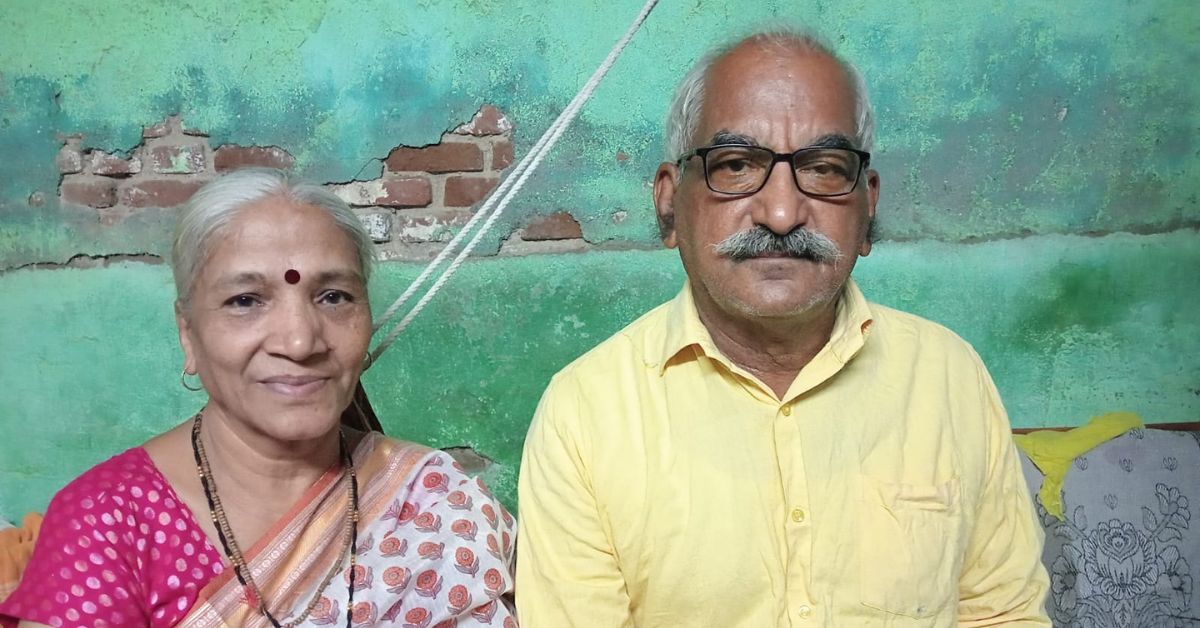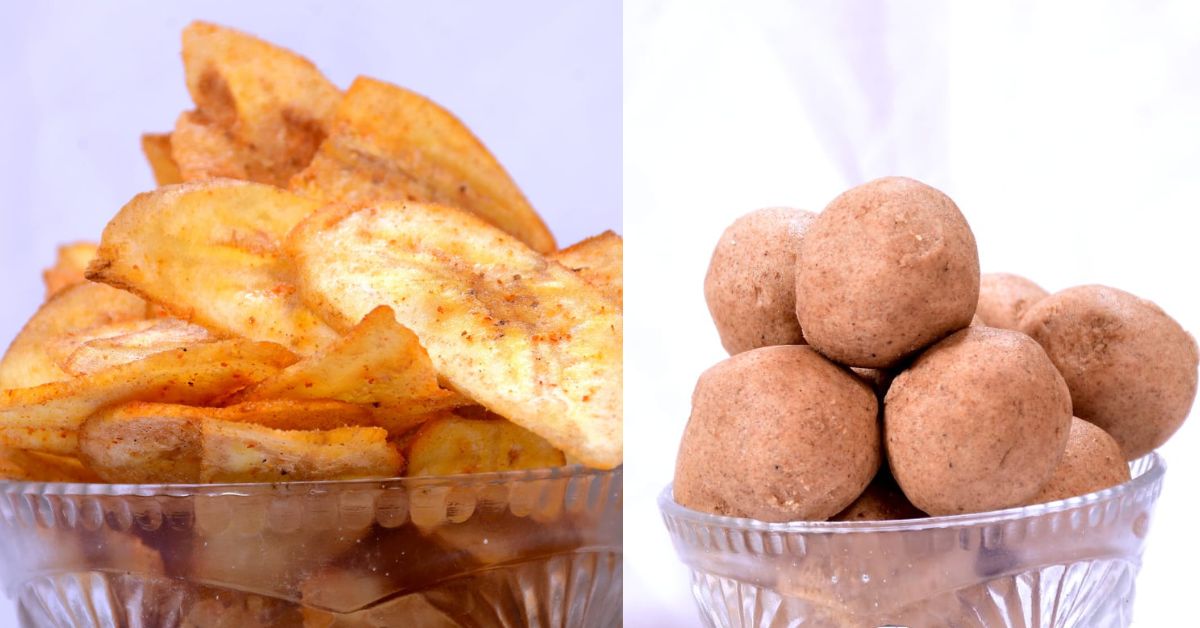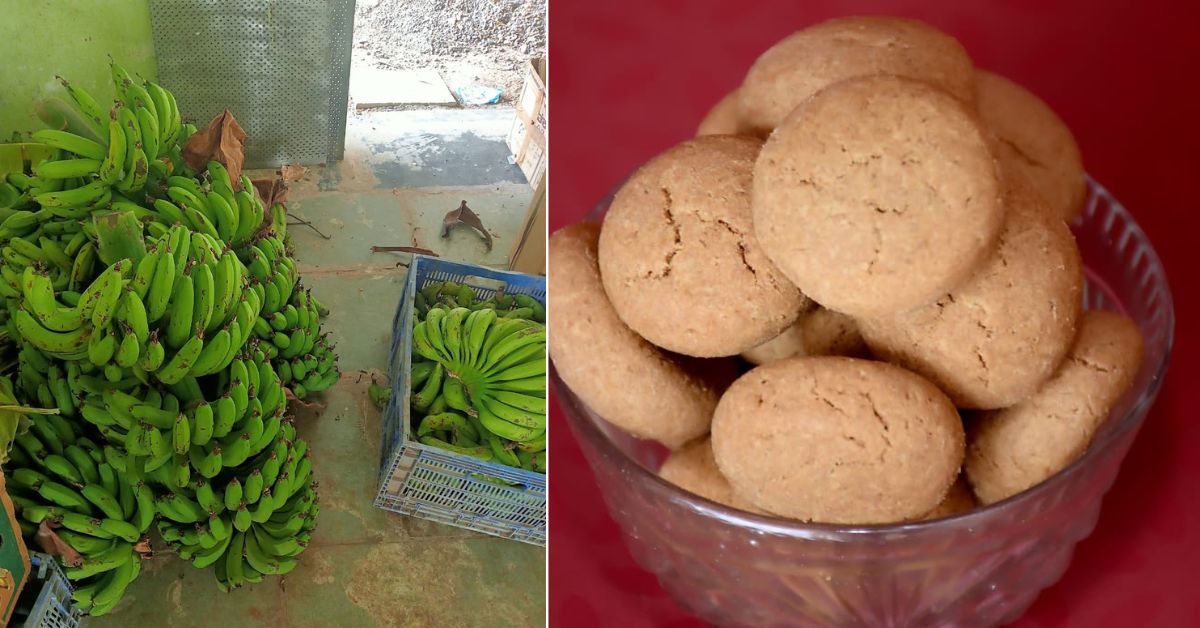Located on the northern edge of the Deccan Plateau, Maharashtra’s Jalgaon district is rich in volcanic soil and is a major business centre for cotton and bananas. Often tagged as the Banana City of India, Jalgaon produces 3.4 million tonnes of bananas and accounts for 70 percent of Maharashtra’s banana production and more than 11 percent of that of India.
Despite these noteworthy statistics, banana cultivation remains an unprofitable business for a large number of farmers.
“Whenever we tried selling our produce, we always incurred losses. We often wondered why banana farming is not profitable. The only reason we could think of was its shelf life,” Ashok Gade (72) tells The Better India.
“Once sown, we can harvest bananas only after a year. The harvesting period is about 28 days. It costs us about Rs 150 to produce one jhaad [roughly 15 kg bunch] of bananas whereas we earn only Rs 1,000 for a quintal [100 kg] of the produce — almost the same as the cost of cultivation. We have even sold bananas for Rs 1.25 per kg. As the region produces bananas in bulk, we get low prices amid huge supply. The market prices also keep fluctuating,” he adds.
The farmer also points out that since bananas are a perishable commodity, they cannot stock the produce. “Farmers need to sell bananas as soon as possible. And if the produce starts ripening, we are forced to sell at throwaway prices. Often we watch our hard-grown produce rot in the field,” says Ashok.

So, instead of selling banana fruits directly in the unstable market, Ashok and his wife Kusum came up with an idea to increase the shelf life of the produce by processing the banana fruits into potential value-added products. Today, the couple manufactures banana products like banana chips, jam, candies, papad, chivda (flattened banana), laddu, sev (a type of chips) and gulab jam.
Interestingly, the couple has also innovated biscuits out of bananas. And in April this year, the Central Government granted them a patent for their banana biscuits. They have also applied for two more patents that are under review.
Quit law to become a farmer
Born into an agricultural family in Yawal taluka, Ashok studied law in Jalgaon. After graduating with an LLB, he practised law for about five years. However, he had to quit his practice in 1990 after his father passed away.

“For generations, we have been cultivating bananas. After my father’s death, the entire responsibility of managing the farm came upon me. I had to quit law despite my interest in it,” says Ashok, who owns an agricultural land of 12.5 acres.
Amid high input costs and low profitability, the progressive farmer decided to process bananas into value-added products like banana flour, jam, and laddus. “I did not learn this technique from anywhere, so we continued to experiment with bananas. Eventually, during the processing, we innovated biscuits out of bananas. We used banana, ghee, and sugar to make these biscuits,” says the 72-year-old without revealing their secret processing method!
For the last three years, Ashok and his wife have been manufacturing and selling these banana biscuits locally. Recently, they received a patent from the Central Government for the same. This patent allows them the right to stop others from copying their invention without their permission.

“We wanted to keep our invention secured as it is our baudhik sampada (intellectual property). After we earned the patent, the demand for our product increased and we also earned recognition,” he says.
How value-addition helps farmers
Priced at Rs 400–500 per kg in the wholesale and retail market respectively, these banana biscuits have fetched the couple up to four times profits.
Today, the couple sells between 200 and 350 kg of banana biscuits in a week and earns an annual revenue of Rs 50 lakh through online marketplaces like Facebook and offline exhibitions.
Their banana biscuits have found buyers not only in Maharashtra but also in West Bengal, Odisha, Karnataka, and Delhi. “This patent will also allow us to expand our market to other countries as well,” says Ashok.
One of their regular customers, Nilimi Divakar tells The Better India, “The biscuits that we get in the market contain maida (refined wheat flour) which is not good for health. We wanted to switch to healthier alternatives. That’s when we found out about these banana biscuits. As bananas are rich in calcium, I offer these biscuits to my kids. Other than the health benefits, these biscuits are also good in taste.”
Other than the rising demand due to the patent, Ashok is glad to have been able to benefit farmers like him. “We are getting more orders and to be able to fulfil the demand, I have collaborated with 50 other banana farmers in the village,” he adds.
The couple has also established a manufacturing unit ‘Sankalp Enterprises’ spread across an area of 1,000 sq feet. “We purchased machinery from Indore and Kolhapur and invested about Rs 30 to 40 lakhs in setting up the unit. Because of the rising demand, we have completely switched over to processing the bananas. We do not sell raw bananas anymore,” smiles Ashok.
Source:
How Jalgaon, ‘Banana City of India’, is fast becoming the ‘Banana Republic’: Published by Financial Express on 18 June 2018.
Edited by Pranita Bhat. All photos: Ashok Gade.

No comments:
Post a Comment